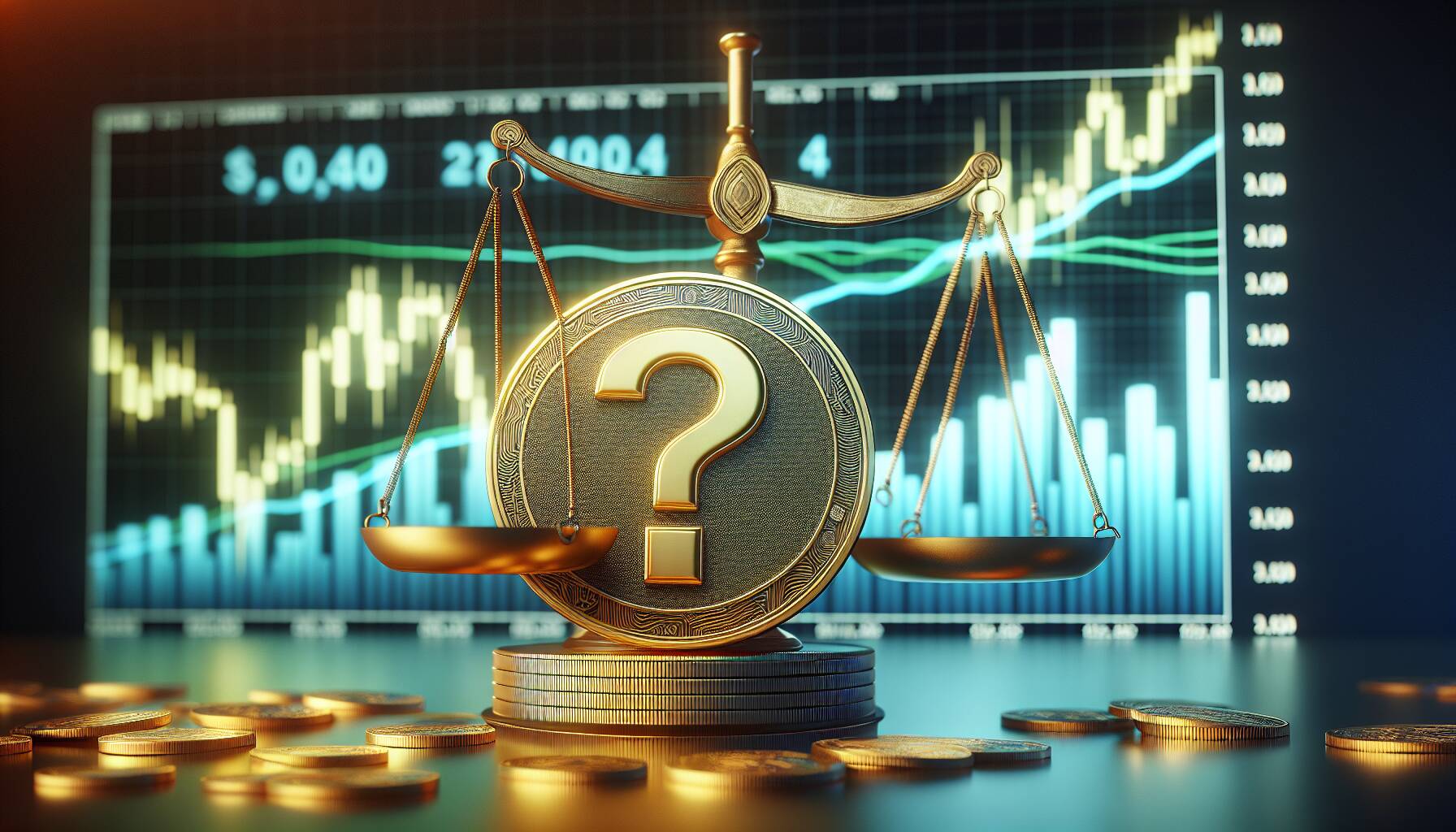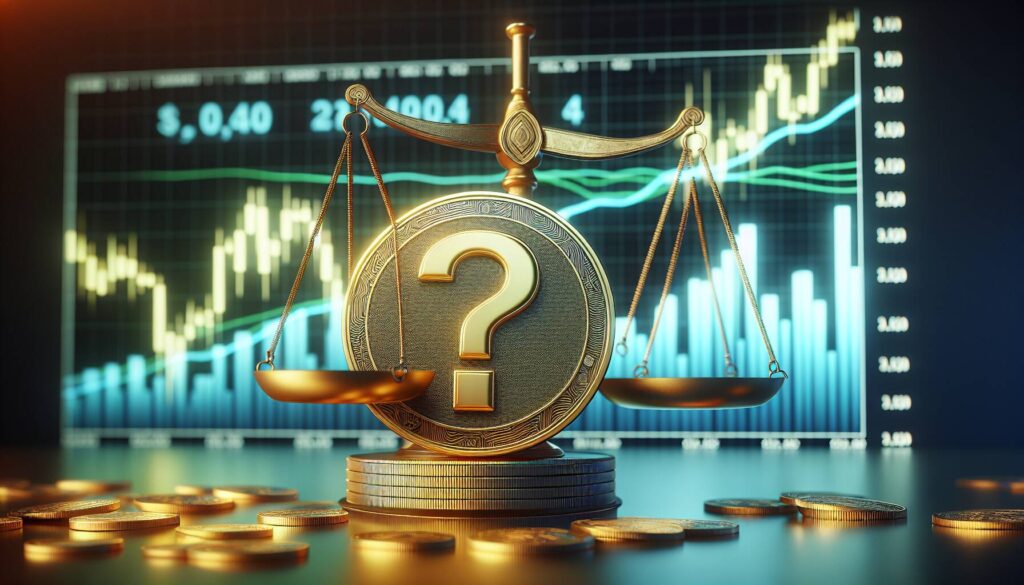In a bold move that has sent shockwaves through the cryptocurrency market, former President Donald Trump announced plans to establish a federal cryptocurrency reserve. This revelation, made on Sunday, sparked a swift surge in digital asset values, particularly for tokens like Cardano (ADA), which saw a staggering 60% increase shortly after the announcement. Other listed cryptocurrencies, including XRP, Solana (SOL), Ethereum (ETH), and Bitcoin (BTC), also experienced significant boosts, highlighting the immediate impact of this potential policy shift.
However, alongside the market excitement, there are resurfacing concerns regarding potential conflicts of interest surrounding David Sacks, a venture capitalist and Trump’s appointed “crypto czar.” Sacks, a key player in the crypto landscape, has business ties through his firm Craft Ventures, which invests in Bitwise—a crypto index fund manager holding all the tokens mentioned by Trump. The intertwining of political influence and personal investment interests has raised eyebrows, especially considering Sacks’ previous disclosures of personal investments in these cryptocurrencies.
In his defense, Sacks took to social media platform X to clarify that he had sold his cryptocurrency holdings before Trump took office, and he emphasized that he no longer has substantial indirect holdings. Still, his historical involvement with Bitwise and the ongoing partnership raises questions about the degree of his financial stake in the firm. Moreover, the fact that Bitwise manages several exchange-traded funds, including ones for XRP and SOL, places it on a promising trajectory if Trump’s crypto reserve is realized.
“I sold all my cryptocurrency (including BTC, ETH, and SOL) prior to the start of the administration,” stated Sacks, addressing speculation around his financial motivations.
The upcoming White House cryptocurrency summit, which Sacks is set to host, is expected to shed more light on these plans and highlight the administration’s vision for the cryptocurrency market—a sector known for its enthusiastic supporters among corporate donors in the lead-up to the 2024 election. Trump’s anti-regulatory stance has found popularity among crypto advocates; however, concerns linger that endorsing particularly volatile assets may inadvertently undermine the sector’s credibility. Adding to the controversy are Trump’s own ventures in the cryptocurrency space, such as the launch of his meme coin, TRUMP, on the Solana blockchain, suggesting that the boundary between personal gain and public policy may be more porous than previously thought.
The delicate interplay between the rise of cryptocurrencies and the potential for political gain has never been more pronounced, making this a fascinating time to observe developments in both the cryptocurrency market and U.S. policy landscape.

Impact of President Trump’s Federal Cryptocurrency Reserve Announcement
The recent announcement by President Trump regarding a federal cryptocurrency reserve has significant implications for the digital asset market and raises ethical concerns. Here are the key points:
- Market Surge:
- Trump’s announcement resulted in a rapid increase in digital asset prices, with ADA soaring by 60% in minutes.
- Other cryptocurrencies like XRP, SOL, ADA, ETH, and BTC also experienced notable price jumps.
- Potential Conflicts of Interest:
- David Sacks, Trump’s crypto czar, has potential financial ties to the cryptocurrencies mentioned, raising ethical concerns.
- His firm, Craft Ventures, is invested in Bitwise, a crypto fund that holds tokens listed for the federal reserve.
- Lack of Transparency:
- Sacks claims to have sold personal cryptocurrency holdings, but questions remain about his direct stake in Bitwise.
- Craft Ventures has not provided clear responses regarding Sacks’ current investments.
- Future Government Involvement:
- Sacks is organizing a White House cryptocurrency summit aiming to clarify government plans for the sector.
- Trump’s efforts to engage with the crypto community highlight its significance as a donor group for the 2024 election.
- Concerns over Market Legitimacy:
- Supporters are worried that focusing on volatile assets could harm the legitimacy of the entire cryptocurrency market.
- Trump’s personal cryptocurrency ventures, including the launch of a meme coin, compound these concerns.
The dynamics of cryptocurrency regulations and investments could significantly affect personal finances and investment strategies for many individuals engaging with digital assets.
Analyzing the Implications of Trump’s Cryptocurrency Reserve Announcement
President Trump’s recent declaration regarding the establishment of a federal cryptocurrency reserve has undeniably stirred excitement in the digital asset market. With tokens like XRP, SOL, ADA, ETH, and BTC soaring post-announcement, the potential benefits for these cryptocurrencies are evident. This move, however, comes with its own set of competitive advantages and challenges, reflecting a complex landscape within the cryptocurrency sector.
Competitive Advantages: The clear upside to Trump’s announcement is the immediate surge in token values, driven by increased investor interest fueled by the prospect of official support. For investors and cryptocurrency stakeholders, this level of government endorsement enhances legitimacy in a space often seen as speculative. Additionally, firms like Bitwise, which are well-positioned with ETFs encompassing these tokens, stand to gain significantly from heightened demand should the cryptocurrencies be included in the federal reserve. Moreover, hosting a White House cryptocurrency summit can further establish Trump’s administration as a pivotal player in shaping crypto policy, positively influencing regulatory sentiments towards digital assets.
Competitive Disadvantages: Yet, the announcement has reignited skepticism about potential conflicts of interest, particularly surrounding David Sacks, who is closely aligned with both the administration and substantial contributions to cryptocurrency ventures. This duality raises questions about market manipulation and the ethical implications of political figures benefiting directly from policies they advocate. The “anti-regulatory” agenda could also alienate more moderate investors and established financial institutions concerned about the implications of government involvement in inherently volatile asset classes.
This dynamic could potentially benefit crypto investors who are looking for more regulatory clarity and support, as well as businesses positioned to capitalize on this newfound institutional interest. However, it also creates significant challenges for more conservative market players worried about the foundational risks of endorsing tokens with a volatile reputation. Meanwhile, competitors to Trump, including alternative political candidates and traditional financial entities, may leverage public skepticism regarding his administration’s motives, potentially galvanizing opposition against his crypto initiatives.
In summary, while the announcement can catalyze growth within the cryptocurrency market, it casts a long shadow of ethical scrutiny and market uncertainty that could have lasting effects on both supporters and detractors in this rapidly evolving landscape.

















